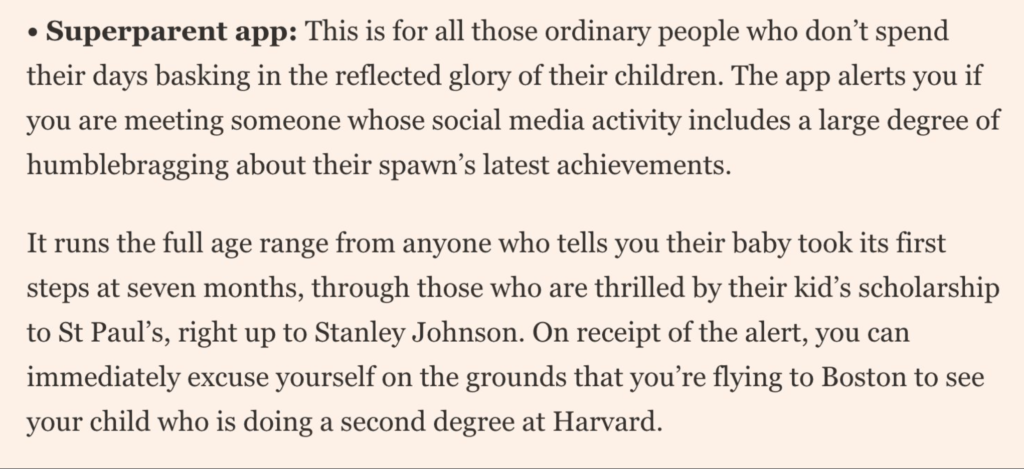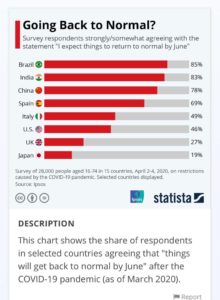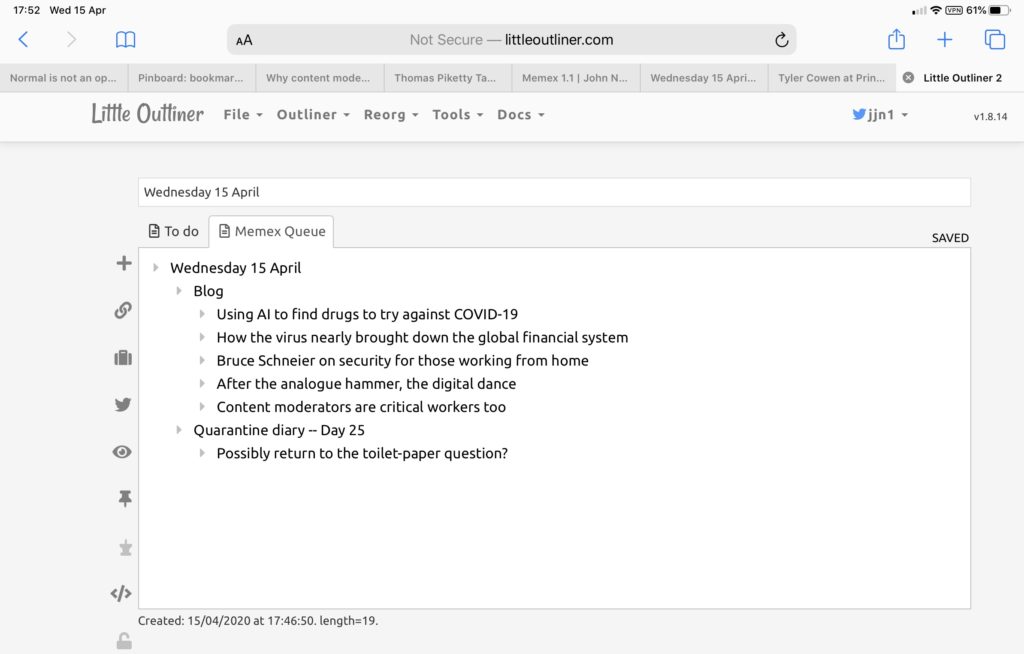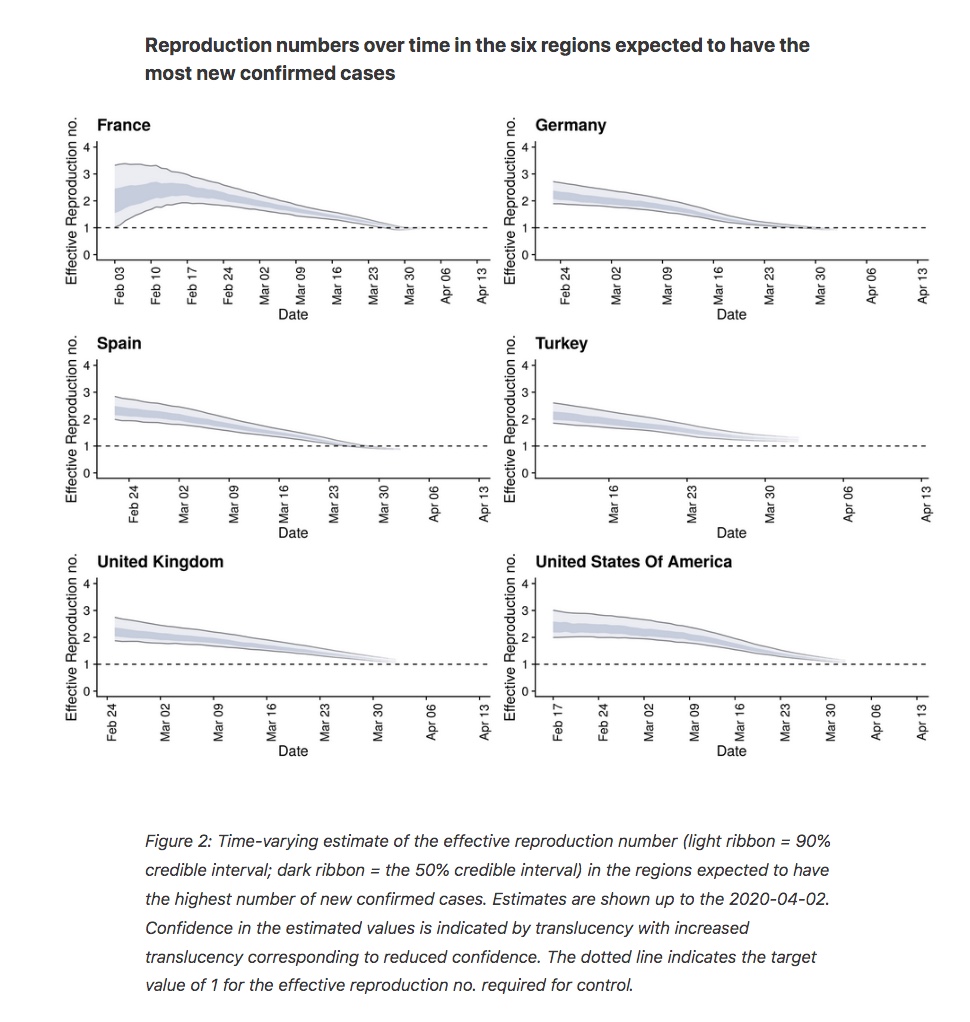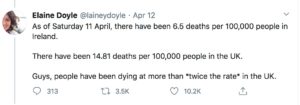There was a duff link in yesterday’s edition. The Safra Center’s briefing paper on contact-tracing technology is here. Apologies for the error. And thanks to Seb for spotting it.
What’s the secret of coronavirus’s success?
One of the ‘existential risks’ that researchers in Cambridge’s Centre for the Study of Existential Risks study is a naturally-evolved or maliciously-engineered pathogen which could wipe out the human species. Pondering how SARS-COv-2 operates, one thought is that anyone designing a lethal pathogen could learn a lot from it. For example, one of the things that makes the Coronavirus so difficult to combat is that infected people don’t display symptoms until days after they have actually become infectious.
Dr Zania Stamataki, a research virologist, has an interesting article in today’s Guardian about this.
In fact, viruses generally have to follow certain rules if they want to get ahead. Stealth is critical, because these pathogens are unable to thrive and reproduce alone. Instead, they invade host cells and rely on them to, first, decode their genetic information to produce components for new virus particles, next, assemble those components, and finally, release new viruses to infect more cells. If this process causes tissue damage that leads to organ failure, the virus risks perishing along with its host.
So we move from the selfish gene to the stealthy virus.
Paul Romer’s view about the near-term future
From John Cassidy’s New Yorker piece, “There is no panacea for the coronavirus economy”
Absent large-scale testing, the outlook is grim, he said. “As soon as we stop the shutdowns, we’ll go right back to exponential growth. It won’t even help us much if we get down to very low rates of infection first, because exponential growth is so fast you get right back there very quickly.” Given the limits to testing capacity and the Trump Administration’s refusal to take the lead in this area, Romer suggested that the most likely outcome is a series of reopenings and renewed shutdowns, as the infection rate rebounds. “From an economic perspective, that is almost as bad as a permanent shutdown,” he said. “Nobody is going to invest. Nobody is going to reopen a restaurant.”
Romer (who is a Nobel laureate) has been experimenting with simple agent-based simulation models) which suggest that a viable strategy would require massive testing and quarantining only those who tested positive, rather than quarantining by random sampling. The former would mean that a controlled resumption to some kind of economic normality might be relatively safe. But at the moment, that’s entirely theoretical given that so few states — and certainly not the US — have anything like the testing capability required.
When I looked at his simulation models I thought they’d been built using NetLogo, which is a tool I’ve used myself in the past. But no: he built them himself in Python.
Peter Beard RIP
Absolutely fascinating NYT obituary
Peter Beard, a New York photographer, artist and naturalist to whom the word “wild” was roundly applied, both for his death-defying photographs of African wildlife and for his own much-publicized days — decades, really — as an amorous, bibulous, pharmaceutically inclined man about town, was found dead in the woods on Sunday, almost three weeks after he disappeared from his home in Montauk on the East End of Long Island. He was 82.
The obit is an account of an astonishing life. His artwork is extraordinary — see some of it on his site. But read the obit first.
HT to Tomasz Ulanowski for alerting me to Beard’s death.
The US government’s bailout program is basically a corporate racket
The Trump narrative about the government bailout is that it’s about protecting the most vulnerable. As Scott Galloway points put, it’s nothing of the kind. It’s basically about buttressing the most wealthy.
As long as they keep making old people, and younger people want to take their kids to Disney’s Galaxy’s Edge, there will be cruise lines and airlines. Since 2000, US airlines have declared bankruptcy 66 times. Despite the obvious vulnerability of the sector, boards/CEOs of the six largest airlines have spent 96% of their free cash flow on share buybacks, bolstering the share price and compensation of management … who now want a bailout. They should be allowed to fail. Bondholders will own the firms. Ships and planes will continue to float and fly, and there will still be a steel tube with recirculated air waiting for you post molestation by Roy from TSA.
One principle (applicable everywhere) is that any corporate claim for government assistance on the grounds that its business has been ruined by the virus should be denied if the firm has engaged in share buybacks over the last two decades. Also private-equity firms should be denied government assistance, on the grounds that no civilised society rewards pirates.

